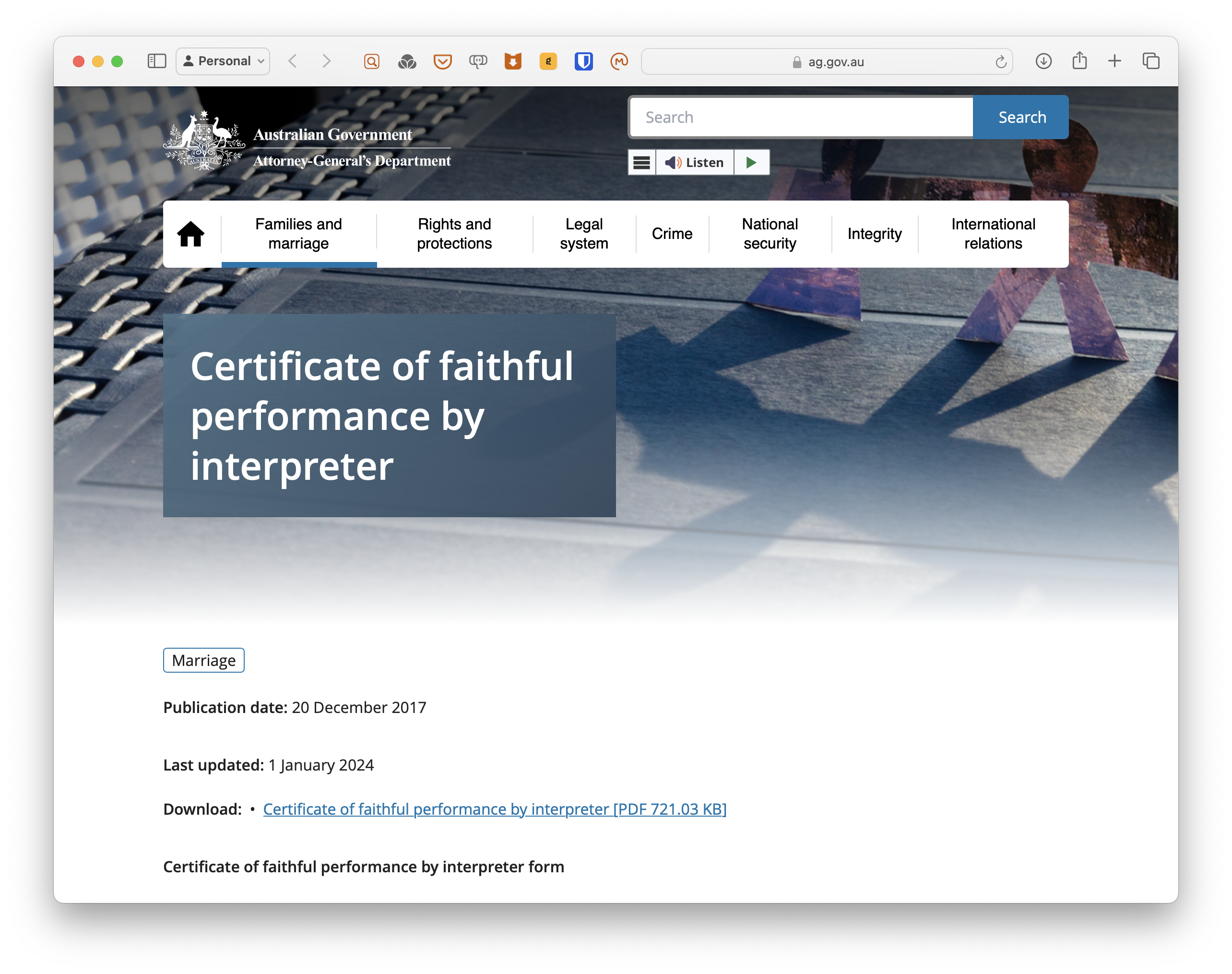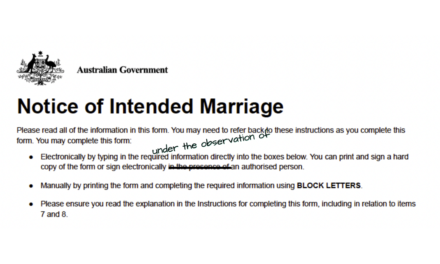The Attorney-General’s Department’s Marriage Law and Celebrants Section announces a significant update: a new Certificate of Faithful Performance by Interpreter.
This change and changed form for 2024, results from modifications to Commonwealth Statutory Declarations, was developed in consultation with the Celebrant Institute and other professional networks.
The Role of Interpreters
Do you need an interpreter? An interpreter is crucial when parties involved in the ceremony are not fluent in the language used. Unlike translators, who deal with written text, interpreters facilitate spoken communication. Their presence ensures that all parties fully comprehend the proceedings, a fundamental aspect of legal and emotional significance in marriage ceremonies.
When to Use an Interpreter
Celebrants should consider using an interpreter in the following situations:
- When either party to the marriage is not fluent in the ceremony’s language.
- If key participants (like parents or witnesses) require language assistance to understand the ceremony, though this is not legally required unless these people are witnesses to the certificates.
- In ceremonies involving sign languages, such as Auslan, for deaf or hard-of-hearing individuals.
Incorporating Interpreters in Ceremonies
Incorporating an interpreter requires careful planning:
- Introduce the interpreter at the beginning of the ceremony, explaining their role.
- Ensure the interpreter is positioned where they can be easily seen and heard by those requiring their services.
- Celebrants should pause at appropriate intervals to allow for accurate interpretation.
Professional Considerations
While the use of professional interpreters is ideal, friends or family members may also serve in this role, provided they are not parties to the marriage. Regardless, the selected interpreter must complete the necessary pre- and post-ceremony documentation, including the newly introduced Certificate of Faithful Performance.
This form, now a required component of the legal framework surrounding marriage ceremonies, underscores the critical role of interpreters in fostering inclusivity and understanding in these significant life events.







